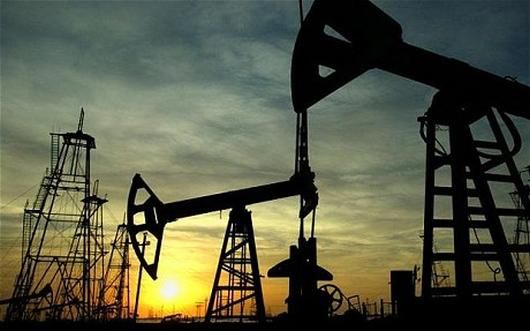
The low energy prices of the past two years have been a windfall for public finances.
Subsidies have fallen, inflation has reduced, government-owned refiners and marketers have made profits and the central government has collected higher revenues by imposing taxes at the retail level.
India's dependency on energy imports is so high that low crude oil prices are overwhelmingly positive, though there are two downsides.
Remittances from Non-Resident Indian (NRIs) in the Persian Gulf and the West Asia have fallen due to slowdowns in those regions.
The other issue is lower petro-product exports from India.
However, refining margins have improved; hence returns from exports have improved, even though the gross value of petro exports has declined.
According to various calculations, the February 2016 Budget estimates would hold good if the Indian crude basket stays at $45-$55 a barrel.
There will be savings in terms of low subsidies and the fiscal deficit will drop if crude is lower. If crude rises above $55, government finances will face some stress.
It's impossible to accurately predict crude price move-ments.
Most analysts believe there is a ceiling to prices at $60-65 a barrel or thereabouts.
At those levels, many expensive shale mining operations become profitable and new supply would therefore enter the market.
Of course, this new supply would not arrive instantly, but it would happen within, say, a quarter or four months.
Meanwhile there is also an overhang of inventory.
Speculators have bought and stored oil when it was going at lower rates.
That oil will be released into the market if crude prices go up again and this inventory could come into the market quickly.
Geopolitics also come into play. The Middle East and North Africa continue to boil.
The Russia-Ukraine situation is also a source of some tension. Both situations carry some risks of supply disruptions.
Meanwhile, Iran has expanded production after being allowed to re-enter the market. Finally, there's economics. If global demand rises, due to faster gross domestic product growth, prices would rise because there would cease to be oversupply.<?P>
In themselves, best guesses at where any one of these factor could go is difficult.
Putting all these together and guessing at the interplay is just that, a guess with a large error factor. However, for what it's worth, Citigroup and Goldman Sachs believe the crude cycle has bottomed out and is more likely to head up than down.
However, those guesstimates could also be revised after the recent World Bank downgrade of global growth projections.
What happens if crude prices do move up? The Indian government will face the prospect of doling out higher subsidies. There will be lower profits (or losses) for public sector undertakings in the refining/ marketing space (and, probably, a subsidy burden placed on PSUs in exploration).
At the macroeconomic level will be higher current account and fiscal deficits.
The government will also face a dilemma about taxes on retail fuels. It raised taxes as fuel prices fell, garnering more revenue. Will it cut taxes as fuel prices rise? If it does, it will lose revenue, even as subsidies rise.
If it does not cut excise, retail price spikes will cause inflation and political unhappiness.
In January-February, the crude basket was trading at $28-30 a barrel. It is now closer to $50.
The April-May average would be about $47. In October 2014, the crude basket cost an averaged $85 but retail prices after last week's hikes are around the same level.
This gives a sense of how much excise rates have been hiked.
The difference of almost $40 a barrel has been mopped by higher excise collections.
In fact, in the first three quarters of the past financial year (April-December 2015), central excise on petro products collected Rs 111 lakh crore versus excise collections of Rs 99,000 in all 12 months of 2014-15.
The bonanza could end in 2016-17, if Goldman Sachs and Citigroup are correct.
If prices do continue to head up, the Centre will have to decide if it will forgo taxes or refuse to raise retail rates (and thereby absorbs losses via its PSUs or takes those losses as subsidies on its own balance sheet).
If excise rates stay at the current levels, while crude rates rise, inflation will soon hit unacceptable levels.
Bear this in mind because it could be a major issue if prices do move higher in the next few months.












 © 2025
© 2025